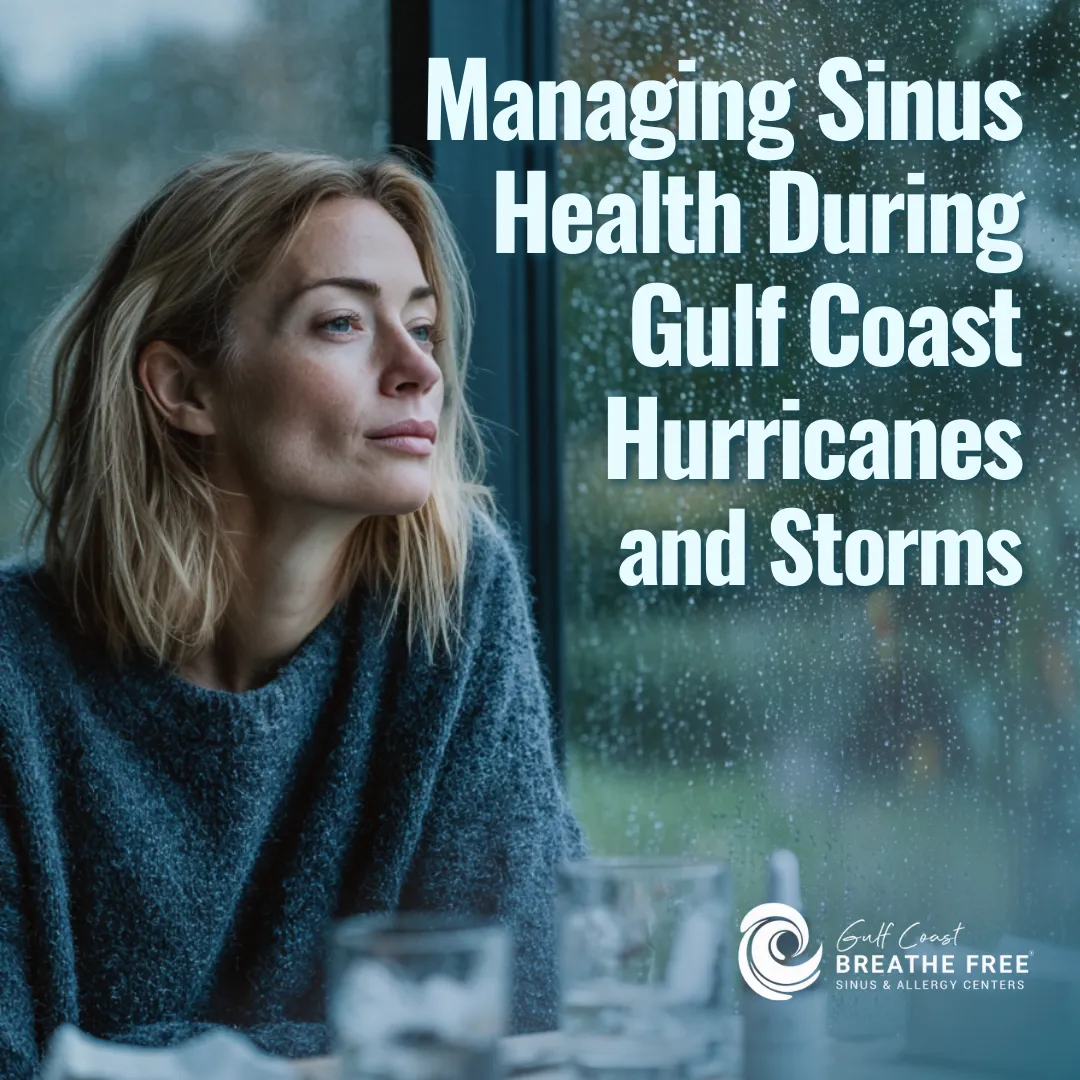Managing Sinus Health During Gulf Coast Hurricanes and Storms
Weather changes bring more than just shifts in temperature or rainfall. For some individuals, especially those with existing sinus conditions, storm season can increase discomfort or trigger symptom flare-ups.
If you’ve noticed worsening sinus symptoms during the Gulf Coast’s storm or hurricane season, you’re not alone. Many patients report increased pressure, congestion, or sinus irritation during this time of year. Here’s why—and what you can do to help manage it.

Why Gulf Coast Weather May Affect Your Sinuses
The Gulf Coast—including Florida, Texas, and Louisiana—is among the regions most affected by hurricanes and severe storms. The Atlantic hurricane season runs from June 1 to November 30, and during this time, environmental and atmospheric changes may contribute to sinus issues in some people.
Potential sinus triggers during storm season include:
- Barometric pressure changes: Drops in atmospheric pressure can cause discomfort in the sinuses, especially if inflammation or congestion is already present.
- Increased allergens and pollutants after storms: Flooding and storm damage can introduce mold, pollen, and irritants into the air, which may aggravate allergies and sinus sensitivity.
- Humidity shifts: While Gulf Coast air is often humid, certain storm conditions and indoor environments (like air conditioning or post-storm mold exposure) can create dryness or trigger allergic responses.
While not everyone is affected, these factors may worsen symptoms in individuals with sinus inflammation, allergies, or chronic sinusitis.
At-Home Strategies to Support Sinus Comfort
Although every person’s situation is different, the following approaches may offer symptom relief during the storm season:
✔️ Stay well hydrated to help thin mucus and support sinus drainage
✔️ Use a humidifier to add moisture to dry indoor air
✔️ Inhale steam through a hot shower or bowl of warm water
✔️ Elevate your head while sleeping to reduce sinus pressure
✔️ Apply warm compresses to ease facial tension
✔️ Limit alcohol and caffeine, which may contribute to dehydration
✔️ Use saline nasal sprays or rinses to flush out allergens and irritants
✔️ Avoid exposure to pollutants and irritants, including smoke, mold, and strong fragrances
✔️ Consider over-the-counter medications, such as decongestants or antihistamines, for temporary relief (consult your doctor before use)
When to Seek Help from an ENT
If your sinus symptoms become frequent, prolonged, or disruptive—especially during storm season—it may be time for a professional evaluation. An ENT (ear, nose, and throat specialist) can assess whether your symptoms are related to allergies, chronic sinusitis, or other conditions and recommend treatment options tailored to your needs.
Understanding Weather-Linked Sinus Issues at Gulf Coast Breathe Free
At Gulf Coast Breathe Free, our providers work with patients across Florida and the Gulf Coast who experience sinus symptoms affected by weather changes, allergies, or chronic conditions. We offer diagnostic tools and a range of evidence-based treatments designed to provide lasting relief based on your individual needs.
If you’re looking to better manage your sinus health through hurricane season and beyond, schedule a consultation with our team to learn what options may be available.

.webp)